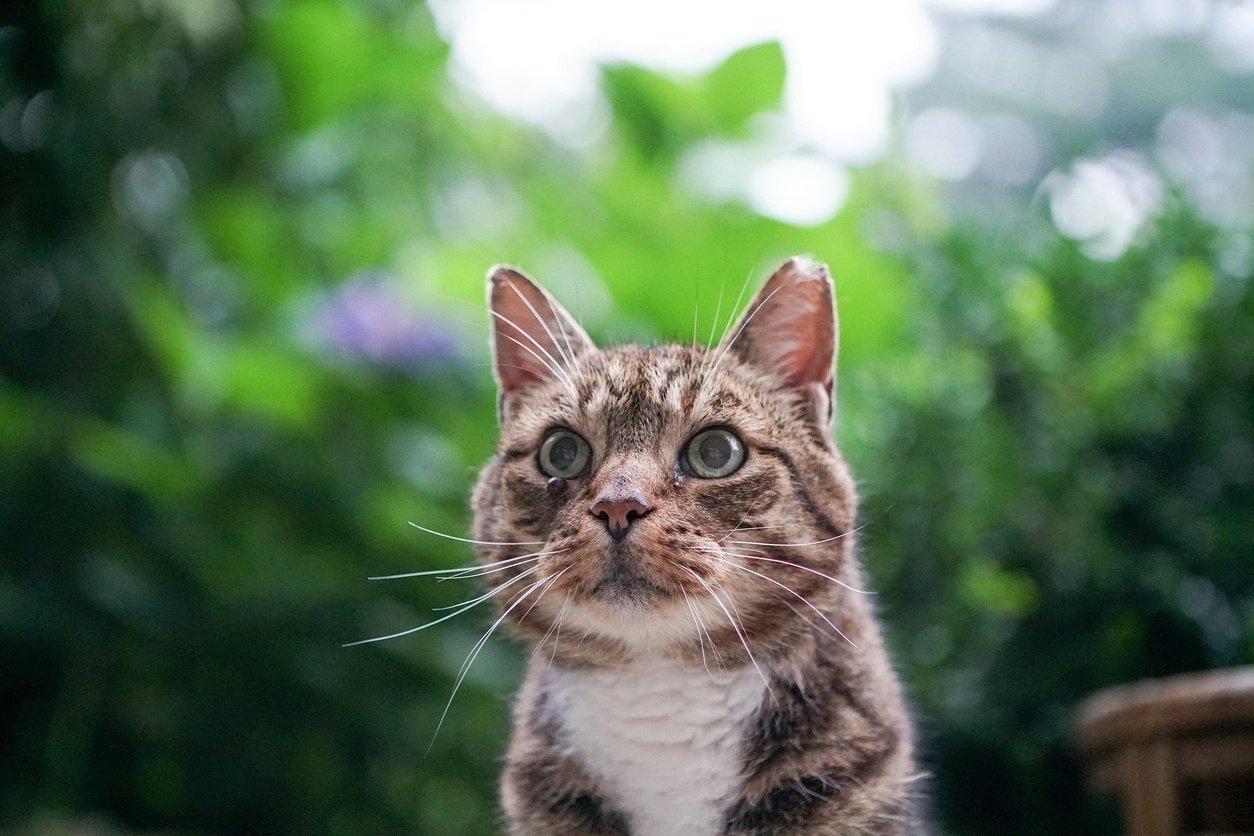The Pros and Cons of an Outdoor Cat
•Posted on April 10 2018

 Owning a Cat is a wonderful thing but before you bring your new feline friend home you need to decide on the environment you feel is best for your new family member and one that will ensure they have the best quality of life. The indoor-outdoor question is one of the toughest decisions to make and just like people, cats are individuals, and each have their own personality, so whilst some cats love exploring the outdoors, others will barely peek their head out of the cat flap.
To help you with your decision we have weighed up the pros and cons of owning an outdoor cat.
Owning a Cat is a wonderful thing but before you bring your new feline friend home you need to decide on the environment you feel is best for your new family member and one that will ensure they have the best quality of life. The indoor-outdoor question is one of the toughest decisions to make and just like people, cats are individuals, and each have their own personality, so whilst some cats love exploring the outdoors, others will barely peek their head out of the cat flap.
To help you with your decision we have weighed up the pros and cons of owning an outdoor cat.
Pros of an Outdoor Cat
Natural Behaviour
In the outdoors, cats are free to engage in their normal behaviours such as scratching and spraying where it may not be appreciated in the home and where they could potentially cause damage.Exercise
Outdoor cats are less likely to be overweight and suffer with associated health problems. Hunting, stalking and climbing are all ways cats get their exercise.Less Stress
Sometimes, your cat may need personal space of other animals, cats or even unfamiliar visitors that come into the house as they can observe them as a threat which will ultimately cause them stress. Having the ability to leave the house provides them with the means to get away and calm down. If you’re worried about other cats in the neighborhood entering your home, microchip and magnetic cat flaps provide peace of mind through extra security.Environment
The outdoor environment offers countless opportunities for your cat to discover new smells, sights, textures and experiences stimulating their natural curiosity, wellbeing and provides them with an important mental workout.Cons of an Outdoor Cat
Disease & Parasites
Outside your cat is more exposed to ticks, fleas and internal worms - to find out how to prevent and treat these, speak to your vet. They are also much more exposed to contracting infectious diseases through the outdoor environment however another the main cause is through fighting with other cats. Contact your vet about a vaccination that can help protect your feline friend against many of these diseases.Road Risk & Injuries
With their great ability to wander, many cats are killed or injured on our roads each year with some studies showing they occur mostly night. Most of these cases are in young cats – under one year old – or unneutered males as they tend to roam further. Injuries can also occur when fighting with other cats, particularly if a new cat moves into the area as cats that share territories tend to ‘time share’ this is where one cat will use the area in the morning and another in the afternoon. Neutering your cat can reduce both these risks.Getting Lost
There’s a whole range of reasons why your cat could go missing. The most common one is getting trapped in a garden shed or garage. Sometimes, they can be mistaken for strays and people will feed them or hand them in to a local animal shelter. It would be a good idea to speak to your vet about microchipping, if they aren’t already, to make it easier to locate your cat should it go missing.Overall Minimising Outdoor Risks
- Make sure that they are up to date with their vaccinations and treat them with flea and worming remedies
- It is best to have your cat neutered as this reduces roaming
- Get your feline friend microchipped. You will be contacted more quickly should your cat be found and this is a permanent means of identification
- Keeping your cat inside at night will reduce the risk of them being involved in a road accident. Make your garden cat friendly with high perches, a litter area and plenty toys. This will stop your cat wanting to wander.
- High fences deters cats from roaming. However, check the regulations with your local council before placing a high fence.
- To ensure your cat returns at night, try shaking a bag of their favourite food or tapping a fork against their food tin.


